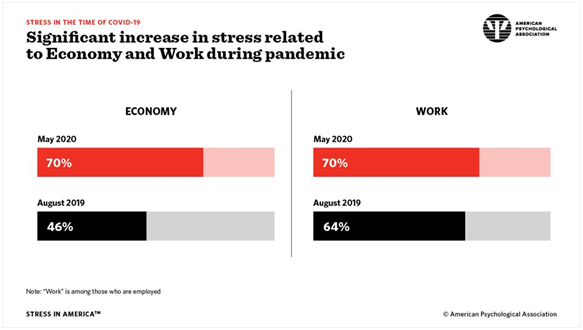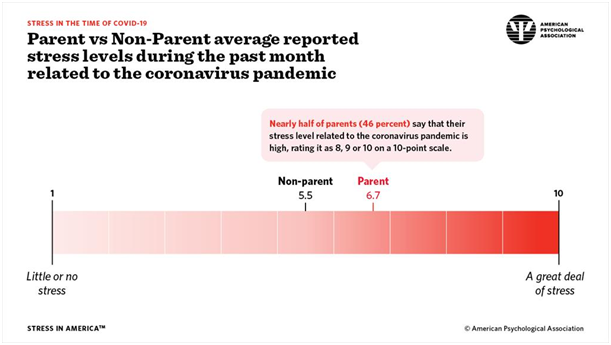Adjusting to Work from Home

Over 16 million workers switched to remote work due to the coronavirus starting in March 2020. For many, this has been an enormous change in their daily lifestyle. Workers created their bedrooms into offices, adjusted to working around family members and housemates, and learned time management with little supervision. While some prefer the flexibility, reduced commute time, and independence that comes with working from home, it has affected many others' mental health.
How can work from home impact physical health?
Sitting too much - From our beds to our desks, remote workers experience minimal physical activity. When commuting to work, workers either drive or take public transportation. In either case, the steps walking from the parking lot or bus stop to their desks accumulated in more physical activity than we are experiencing right now. In-person work also required going to different meeting rooms or going out for lunch. However, with our kitchen only several feet away and online meetings, many workers stay idle for eight hours.
In a WebMD poll of 1,012, 47% of women and 22% of men reported weight gain during the months of COVID-19 restrictions. Of these, 72% associated with the lack of physical activity to the weight gain. Sitting for long periods have of time causes many health risks including, obesity, diabetes, and deep vein thrombosis. A Harvard review highlights the dangers of sitting for too long. As we sit, our muscles are relaxed, therefore taking little glucose into our blood – increasing the risk of type 2 diabetes. Deep vein thrombosis is also caused by low blood circulation when sitting for long periods.
Increased Snacking - Increased snacking is also a prevalent problem linked to working from home. Workers have more accessibility to their pantry and refrigerators while working. During stressful parts of the workday, people are more prone to stress eating.
Increased Alcohol Consumption - Surprisingly, even though clubs and bars were closed during months of quarantine, there was an increase in alcohol sales.The University of Utah reported that alcohol distributors saw a 50% increase in alcohol sales from one week in March comparedto the same week one year ago. Work stress or stress due to the coronavirus can be the cause of increased alcohol consumption. Some also feel fewer responsibilities from working from home, therefore allowing themselves to drink on a weeknight.
How is working from home causing stress and anxiety?
No end to a workday – Many workers prefer and need the boundary between office and home. The workday started when walking into the office; now, the workday beginswhen you wake up and get out bed. With the ability to check your work emails from home, people don't see an end to the workday.
Working around other people's schedules – Traveling for work is mostly banned, and online meetings are replacing face-to-face meetings. This switch comes with the responsibility of adjusting to others' time zones – meaning waking up earlier or late-night meetings. Working on another time zone while living in another impact sleeping schedules.

Lack of social life –Remote workers experience loneliness and isolation with reduced social interaction and lost co-workers. For the people that live alone, a switch to working remotely can be mentally tolling. There is a sense of norm having face-to-face conversations with friends and co-workers. Replacing that with online messaging and video calls does not always heal feelings of isolation. Not only, working in an office brings non-work social interaction through office parties and after-work outings. Unfortunately, many workers get to miss out on these events during the summer months.
Working with kids at home – The coronavirus restrictions have not only sent workers home but also students. Many working parents with young kids struggle to adapt to a productive workday while caring for their children. Even with closed daycare centers and fewer babysitters available, parents cannot find at-home childcare during their work hours. Parents to young kids also have the added task of assisting them with online learning. Juggling both work and parent responsibilities can result in decreased productivity and increased stress on parents and kids. Having productive and undisturbed meetings is difficult when there are kids in the background, making noise.

How to combat stress and anxiety with teletherapy?
There are many ways to combat feels of isolation, stress, and depression while working from home.Having no time is the biggest excuse, but with the emergence of teletherapy, anyone canspeak to a counselor online for free.Online counseling services are available to anyone experiencing mental health issues such as anxiety and depression. Especially, with increased stress in the household, phone therapists are available for counseling parents and children. Family teletherapy and relationship counseling over the phoneis a perfect point starting adjusting to the new realities of working from home.
